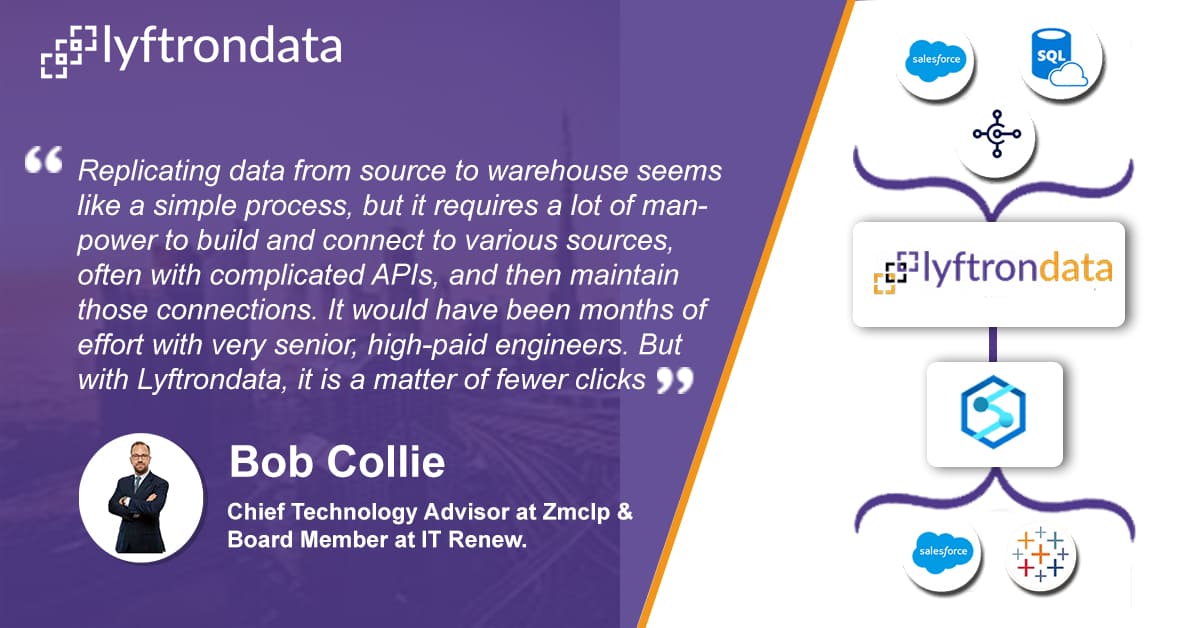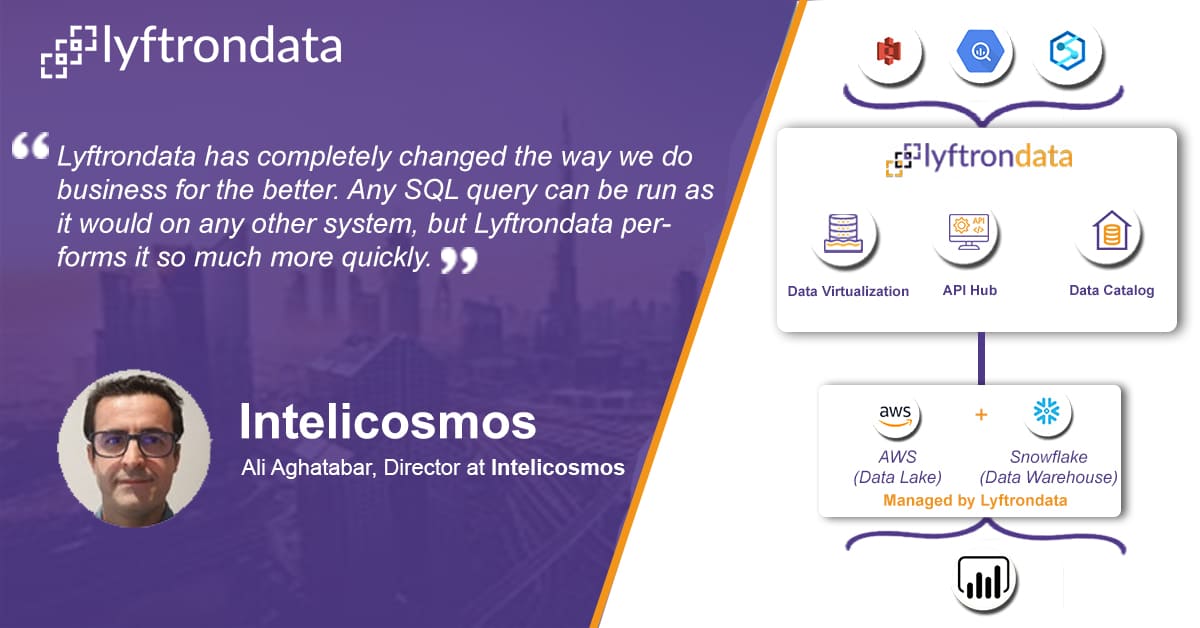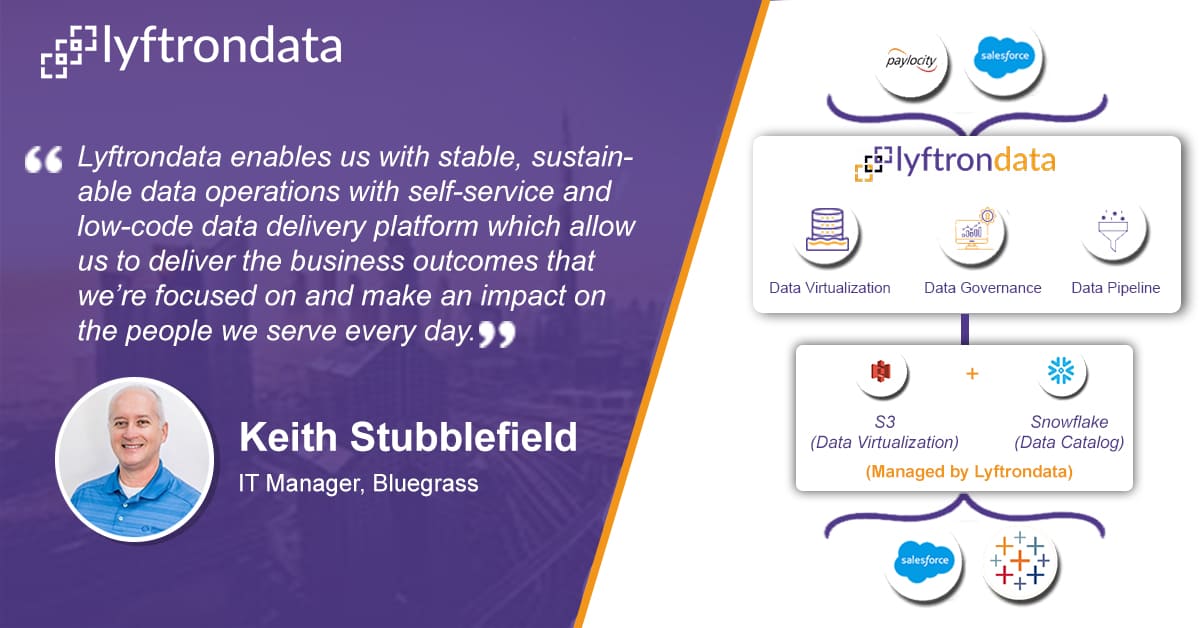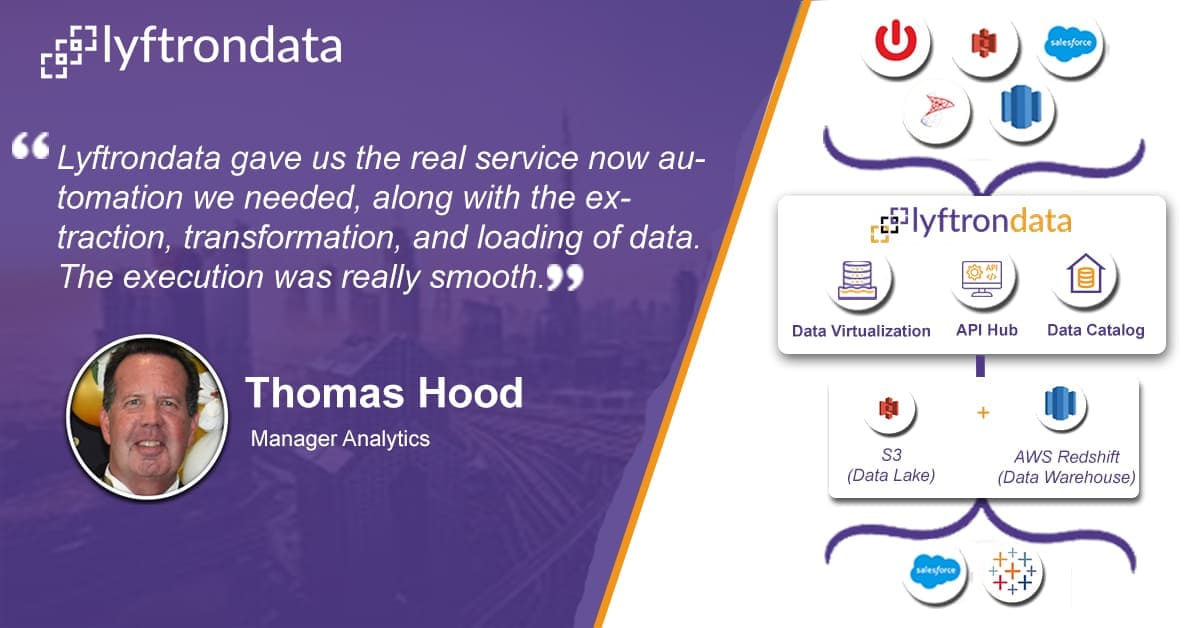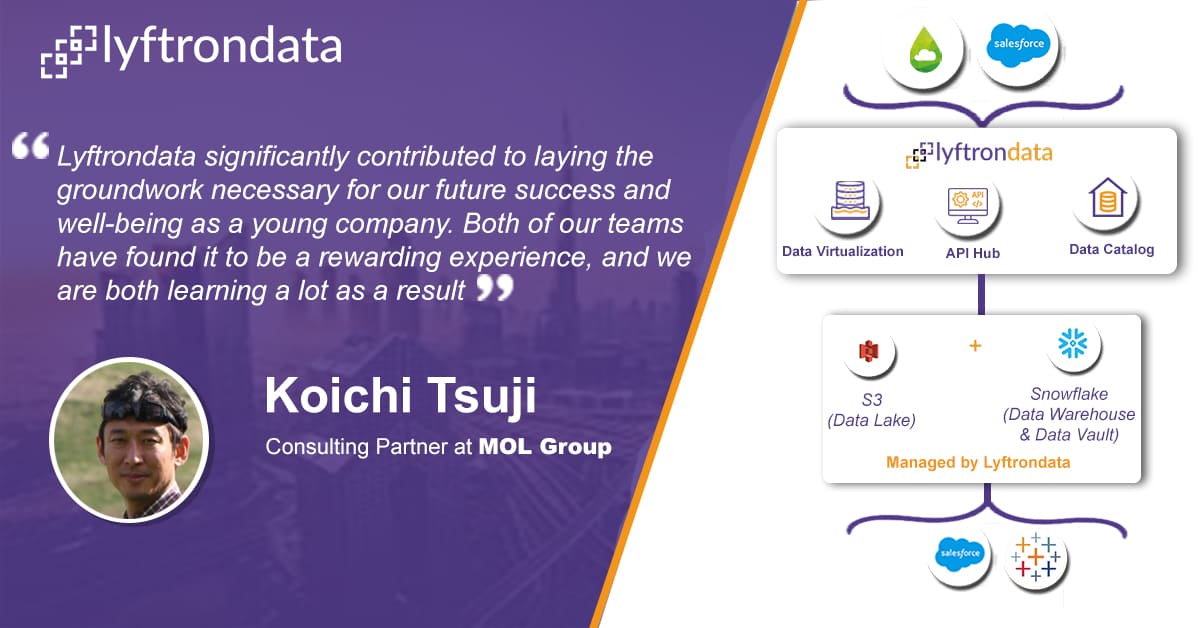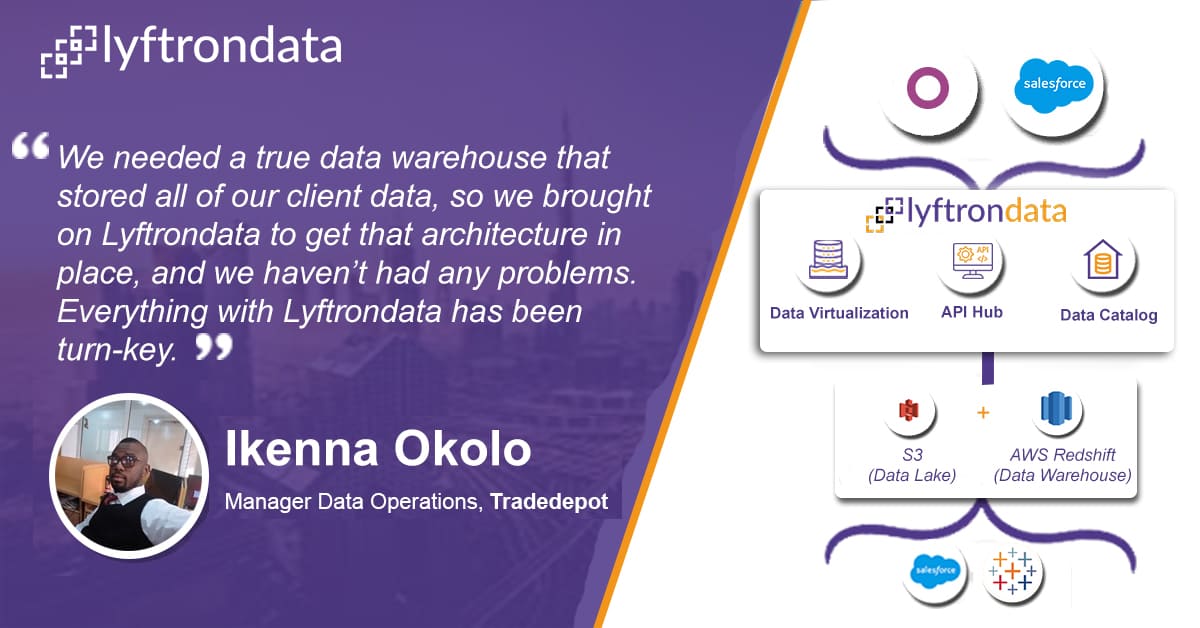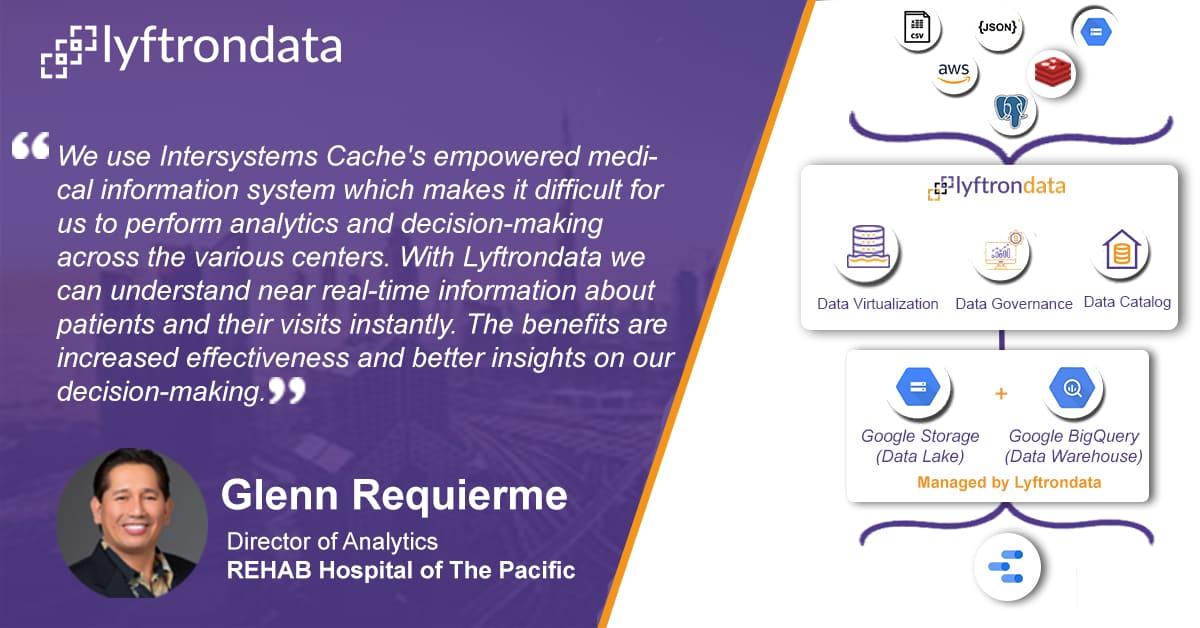200X Acceleration at
1/10th of the cost
Zero
maintenance
No credit card
required
Zero coding
infrastructure
Multi-level
security
Simplify Sage DDS Azure integration in
4 simple steps
Create connections
between Sage DDS Azure and targets.
Prepare pipeline
between Sage DDS Azure and targets by selecting tables in bulk.
Create a workflow
and schedule it to kickstart the migration.
Share your data
with third-party platforms over API Hub
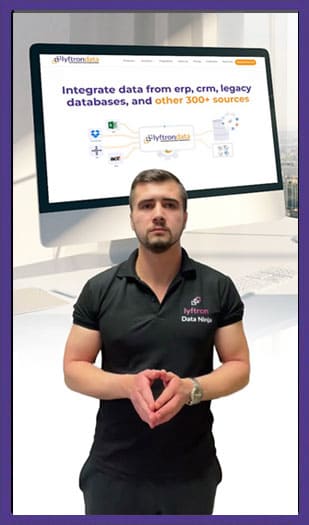
Why choose Lyftrondata for Sage DDS Azure Integration?
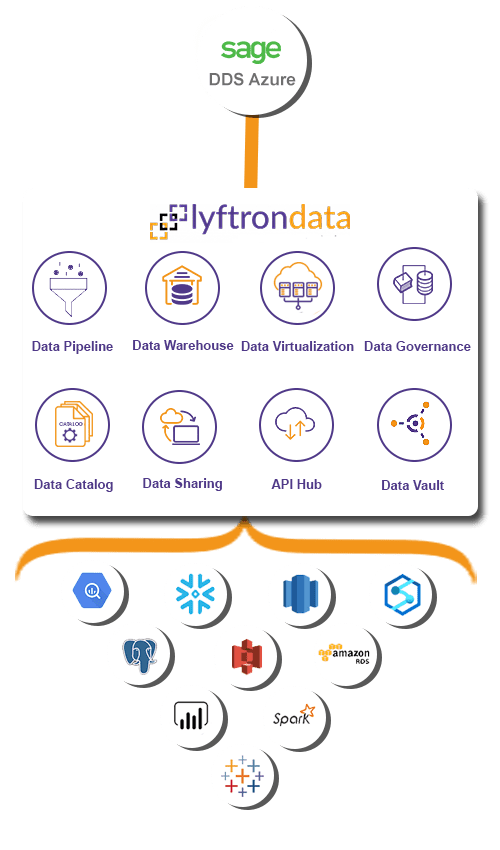

Simplicity
Build your Sage DDS Azure pipeline and experience unparalleled data performance with zero training.

Robust Security
Load your Sage DDS Azure data to targets with end-to-end encryption and security.

Accelerated ROI
Rely on the cost-effective environment to ensure your drive maximum ROI.

Customer's Metrics
Track the engagement of your customers across different channels like email, website, chat, and more.

Improved Productivity
Measure the performance of your team and highlight areas of improvement.

360-degree Customer View
Join different data touch points and deliver personalized customer experience.
Hassle-free Sage DDS Azure integration to the platforms of your choice
Migrate your Sage DDS Azure data to the leading cloud data warehouses, BI tools, databases or Machine Learning platforms without writing any code.
Hear how Lyftrondata helped accelerate the data journey of our customers
FAQs
What is Sage DDS Azure?
"Sage DDS Azure" refers to the Sage Data & Analytics (SD&A) solution, which is a cloud-based data management and analytics platform from Sage. This solution is designed to work within Microsoft Azure infrastructure and aims to provide businesses with a scalable, cloud-native platform to centralize, manage, and analyze their data.
What are the features of Sage DDS Azure?
Data Management:
Sage Data & Analytics provides tools for collecting, managing, and processing data from multiple sources. It centralizes data into a single platform, making it easier for businesses to manage and analyze their information.
Integration with Sage Products:
This platform integrates well with Sage's enterprise resource planning (ERP) systems, such as Sage X3, Sage Intacct, Sage 100, and Sage 300, allowing businesses to seamlessly connect data from their ERP systems for reporting and analytics.
Data Transformation and Reporting:
Sage DDS Azure helps businesses transform raw data into actionable insights using advanced reporting and visualization tools, such as Power BI or other analytics platforms integrated within Azure. This allows for the creation of dashboards and reports for better decision-making.
Automated Data Flows:
The platform allows for the automation of data extraction, transformation, and loading (ETL) processes from different sources into Azure-based storage and analytics environments.
What are the shortcomings of Sage DDS Azure?
Cost:
High Initial Setup Costs: Implementing Sage DDS Azure, particularly with the need for Azure infrastructure and other related services, can result in significant upfront expenses for businesses, especially small and medium enterprises (SMEs).
Ongoing Operational Costs: The cost of maintaining the platform, such as storage, compute power, and data processing on Azure, can escalate as the volume of data grows, making it potentially expensive for long-term use.
Complexity for Non-Technical Users:
Steep Learning Curve: While Sage DDS Azure offers extensive data capabilities, non-technical users may find it challenging to navigate and fully leverage the platform. It requires a solid understanding of data management, business intelligence tools, and cloud-based technologies.
Dependency on Technical Expertise: Many features, such as creating advanced reports or performing complex data transformations, often require IT staff or data analysts with specialized knowledge, limiting the platform’s ease of use for non-technical stakeholders.
Integration Challenges:
Limited Integration with Non-Sage Products: Although Sage DDS Azure works well with Sage ERP products, businesses that use non-Sage software or legacy systems may face difficulties with seamless integration, requiring custom connectors or middleware solutions.
Compatibility Issues: Integrating Sage DDS Azure with certain third-party applications may involve complex setup and configuration, which can delay implementation timelines and increase costs.
Make smarter decisions and grow your sales with Lyftrondata Sage DDS Azure integration





